When you want to supplicate to Allah, it is better to use Quranic duas since the best supplications are those found in the Quran, known as Quranic duas, which are abundant and cover all aspects of goodness in this life and the hereafter.
In this topic, I will tell you some abundant Quranic duas and their meanings. You will find short Quranic duas that you can memorize easily.
Here are common Quranic duas. You can read and extract all Quranic duas from the Quran by taking our Learn Quran Reading Course.
Quranic Dua In Surah Al fatiha “last two Ayahs”:
At the heart of every prayer lies this profound supplication for the greatest blessing of all: divine guidance. In these final verses, we constantly ask Allah to lead us on the Straight Path and protect us from going astray.
اهْدِنَا الصِّرَاطَ الْمُسْتَقِيمَ (6) صِرَاطَ الَّذِينَ أَنْعَمْتَ عَلَيْهِمْ غَيْرِ الْمَغْضُوبِ عَلَيْهِمْ وَلَا الضَّالِّينَ (7)
Translation:
“Guide us along the Straight Path, the Path of those You have blessed—not those You are displeased with, or those who are astray.”
This dua is memorized by almost all Muslims since it is repeated in the five prayers every day. This shows the importance of this dua and that we need guidance more in simple daily situations or major decisions.
Quranic Dua In Surah Al Baqarah:
The longest Surah of the Quran, and contains beautiful Quranic Duas such as:
| Verse number | The Quranic Dua | translation: |
| 127 | رَبَّنَا تَقَبَّلْ مِنَّا إِنَّكَ أَنْتَ السَّمِيعُ الْعَلِيمُ | “Our Lord! Accept ˹this˺ from us. You are indeed the All-Hearing, All-Knowing”. |
| 128 | رَبَّنَا وَاجْعَلْنَا مُسْلِمَيْنِ لَكَ وَمِنْ ذُرِّيَّتِنَا أُمَّةً مُسْلِمَةً لَكَ وَأَرِنَا مَنَاسِكَنَا وَتُبْ عَلَيْنَا إِنَّكَ أَنْتَ التَّوَّابُ الرَّحِيمُ | Our Lord! Raise from among them a messenger who will recite to them Your revelations, teach them the Book and wisdom, and purify them. Indeed, You ˹alone˺ are the Almighty, All-Wise. |
| 201 | رَبَّنَا آتِنَا فِي الدُّنْيَا حَسَنَةً وَفِي الْآخِرَةِ حَسَنَةً وَقِنَا عَذَابَ النَّارِ | “Our Lord! Grant us the good of this world and the Hereafter, and protect us from the torment of the Fire.” |
| 250 | رَبَّنَا أَفْرِغْ عَلَيْنَا صَبْرًا وَثَبِّتْ أَقْدَامَنَا وَانْصُرْنَا عَلَى الْقَوْمِ الْكَافِرِينَ | “Our Lord! Shower us with perseverance, make our steps firm, and give us victory over the disbelieving people.” |
| 285 | سَمِعْنَا وَأَطَعْنَا غُفْرَانَكَ رَبَّنَا وَإِلَيْكَ الْمَصِيرُ | And they say, “We hear and obey. ˹We seek˺ Your forgiveness, our Lord! And to You ˹alone˺ is the final return.” |
| 286 | رَبَّنَا لَا تُؤَاخِذْنَا إِنْ نَسِينَا أَوْ أَخْطَأْنَا رَبَّنَا وَلَا تَحْمِلْ عَلَيْنَا إِصْرًا كَمَا حَمَلْتَهُ عَلَى الَّذِينَ مِنْ قَبْلِنَا رَبَّنَا وَلَا تُحَمِّلْنَا مَا لَا طَاقَةَ لَنَا بِهِ وَاعْفُ عَنَّا وَاغْفِرْ لَنَا وَارْحَمْنَا أَنْتَ مَوْلَانَا فَانْصُرْنَا عَلَى الْقَوْمِ الْكَافِرِينَ | “Our Lord! Do not punish us if we forget or make a mistake. Our Lord! Do not place a burden on us like the one you placed on those before us. Our Lord! Do not burden us with what we cannot bear. Pardon us, forgive us, and have mercy on us. You are our ˹only˺ Guardian. So grant us victory over the disbelieving people.” |
All these duas are beautiful, and if possible, try to memorize them. I want to focus on the third duaa of the former table. This short and beautiful Quranic dua gathers both this world and the Hereafter.
Allah taught us this dua by comparing two types of people. The first is only Careful about worldly matters, and the second never ignores the Hereafter. This shows the centrality of interest in the afterlife in the Muslim faith.
Quranic Dua In Surah Al-Imran:
This Surah guides us on how to remain steadfast on the right path. That’s why the Duas mentioned in it revolve around this powerful theme—remaining firm in truth, staying guided, and seeking Allah’s mercy, forgiveness, and support.
| Ayah number | Ayah | Translation |
| 8 | رَبَّنَا لَا تُزِغْ قُلُوبَنَا بَعْدَ إِذْ هَدَيْتَنَا وَهَبْ لَنَا مِنْ لَدُنْكَ رَحْمَةً إِنَّكَ أَنْتَ الْوَهَّابُ | Our Lord! Do not let our hearts deviate after You have guided us. Grant us Your mercy. You are indeed the Giver ˹of all bounties˺. |
| 9 | رَبَّنَا إِنَّكَ جَامِعُ النَّاسِ لِيَوْمٍ لَا رَيْبَ فِيهِ إِنَّ اللَّهَ لَا يُخْلِفُ الْمِيعَادَ | Our Lord! You will certainly gather all humanity for the ˹promised˺ Day—about which there is no doubt. Surely Allah does not break His promise. |
| 16 | رَبَّنَا إِنَّنَا آمَنَّا فَاغْفِرْ لَنَا ذُنُوبَنَا وَقِنَا عَذَابَ النَّارِ | Our Lord! We have believed, so forgive our sins and protect us from the punishment of the Fire. |
| 26 | اللَّهُمَّ مَالِكَ الْمُلْكِ تُؤْتِي الْمُلْكَ مَنْ تَشَاءُ وَتَنْزِعُ الْمُلْكَ مِمَّنْ تَشَاءُ وَتُعِزُّ مَنْ تَشَاءُ وَتُذِلُّ مَنْ تَشَاءُ بِيَدِكَ الْخَيْرُ إِنَّكَ عَلَى كُلِّ شَيْءٍ قَدِيرٌ | O Allah! Owner of sovereignty, You give sovereignty to whom You will and You take sovereignty away from whom You will. You honor whom You will and humble whom You will. In Your hand is all good. You are indeed Most Capable of everything. |
| 27 | تُولِجُ اللَّيْلَ فِي النَّهَارِ وَتُولِجُ النَّهَارَ فِي اللَّيْلِ وَتُخْرِجُ الْحَيَّ مِنَ الْمَيِّتِ وَتُخْرِجُ الْمَيِّتَ مِنَ الْحَيِّ وَتَرْزُقُ مَنْ تَشَاءُ بِغَيْرِ حِسَابٍ | You cause the night to enter the day and the day to enter the night; You bring the living out of the dead and the dead out of the living. And You provide for whom You will without limit. |
| 38 | رَبِّ هَبْ لِي مِنْ لَدُنْكَ ذُرِّيَّةً طَيِّبَةً إِنَّكَ سَمِيعُ الدُّعَاءِ | My Lord! Grant me from Yourself a good offspring. Indeed, You are the Hearer of prayer. |
| 53 | رَبَّنَا آمَنَّا بِمَا أَنْزَلْتَ وَاتَّبَعْنَا الرَّسُولَ فَاكْتُبْنَا مَعَ الشَّاهِدِينَ | Our Lord! We believe in what You have revealed and follow the messenger, so count us among those who bear witness. |
| 147 | رَبَّنَا اغْفِرْ لَنَا ذُنُوبَنَا وَإِسْرَافَنَا فِي أَمْرِنَا وَثَبِّتْ أَقْدَامَنَا وَانْصُرْنَا عَلَى الْقَوْمِ الْكَافِرِينَ | Our Lord! Forgive our sins and our excesses in our affairs, make our steps firm, and grant us victory over the disbelieving people. |
| 191-194 | رَبَّنَا مَا خَلَقْتَ هَذَا بَاطِلًا سُبْحَانَكَ فَقِنَا عَذَابَ النَّارِ (191) رَبَّنَا إِنَّكَ مَنْ تُدْخِلِ النَّارَ فَقَدْ أَخْزَيْتَهُ وَمَا لِلظَّالِمِينَ مِنْ أَنْصَارٍ (192) رَّبَّنَا إِنَّنَا سَمِعْنَا مُنَادِيًا يُنَادِي لِلْإِيمَانِ أَنْ آمِنُوا بِرَبِّكُمْ فَآمَنَّا رَبَّنَا فَاغْفِرْ لَنَا ذُنُوبَنَا وَكَفِّرْ عَنَّا سَيِّئَاتِنَا وَتَوَفَّنَا مَعَ الْأَبْرَارِ (193) رَبَّنَا وَآتِنَا مَا وَعَدْتَّنَا عَلَى رُسُلِكَ وَلَا تُخْزِنَا يَوْمَ الْقِيَامَةِ إِنَّكَ لَا تُخْلِفُ الْمِيعَادَ (194) | Our Lord! You have not created all this without purpose—glory be to You! Protect us from the torment of the Fire. (192) Our Lord! Whoever you condemn to the Fire, you have truly disgraced, and the wrongdoers will have no helpers. (193) Our Lord! We have heard the caller calling to faith, ‘Believe in your Lord,’ so we have believed. Our Lord! Forgive our sins, absolve us of our misdeeds, and cause us to die with the righteous. (194) Our Lord! Grant us what You have promised us through Your messengers and do not disgrace us on the Day of Judgment. Surely, you never fail in your promise. |
Read also: Quranic Dua for Solar Eclipse
Quranic Dua In Surah Al Aaraf:
This Surah is filled with stories of the prophets—and these Duas are a glimpse into their heartfelt supplications. To truly feel the depth of these Duas, you need to know the stories behind them.
| Ayah number | Ayah | Translation |
| 23 | رَبَّنَا ظَلَمْنَا أَنْفُسَنَا وَإِنْ لَمْ تَغْفِرْ لَنَا وَتَرْحَمْنَا لَنَكُونَنَّ مِنَ الْخَاسِرِينَ | “They said, ‘Our Lord, we have wronged ourselves; and if You do not forgive us and have mercy upon us, we will surely be among the losers.’” |
| 47 | رَبَّنَا لَا تَجْعَلْنَا مَعَ الْقَوْمِ الظَّالِمِينَ | “Our Lord, do not place us with the wrongdoing people.” (Direct translation; Islamic English lexicons). |
| 89 | رَبَّنَا افْتَحْ بَيْنَنَا وَبَيْنَ قَوْمِنَا بِالْحَقِّ وَأَنْتَ خَيْرُ الْفَاتِحِينَ | “Our Lord, judge between us and our people in truth, and You are the best of those who give judgement.” (Common translation from Islamic sources.) |
| 126 | رَبَّنَا أَفْرِغْ عَلَيْنَا صَبْرًا وَتَوَفَّنَا مُسْلِمِينَ | “Our Lord, pour upon us patience and let us die as those who have submitted (to You).” (Standard meaning from Islamic translations.) |
| 151 | رَبِّ اغْفِرْ لِي وَلِأَخِي وَأَدْخِلْنَا فِي رَحْمَتِكَ وَأَنْتَ أَرْحَمُ الرَّاحِمِينَ | “My Lord, forgive me and my brother and admit us into Your mercy, for You are the Most Merciful of the merciful.” (Standard translation.) |
| 155 | رَبَّنَا أَنْتَ وَلِيُّنَا فَاغْفِرْ لَنَا وَارْحَمْنَا وَأَنْتَ خَيْرُ الْغَافِرِينَ | “You are our Protector, so forgive us and have mercy upon us, and You are the best of those who forgive.” |
Quranic Dua In Surah Ibrahim
Surah Ibrahim contains heartfelt supplications made by Prophet Ibrahim (A.S), reflecting deep faith, humility, and a strong connection with Allah. These duas emphasize sincerity in worship, the importance of prayer, and seeking forgiveness for oneself and others.
| إبراهيم | 38 | رَبَّنَا إِنَّكَ تَعْلَمُ مَا نُخْفِي وَمَا نُعْلِنُ وَمَا يَخْفَى عَلَى اللَّهِ مِنْ شَيْءٍ فِي الْأَرْضِ وَلَا فِي السَّمَاءِ | “Our Lord! You surely know what we conceal and what we reveal, and nothing is hidden from Allah on earth or in heaven.” |
| إبراهيم | 40-41 | رَبِّ اجْعَلْنِي مُقِيمَ الصَّلَاةِ وَمِنْ ذُرِّيَّتِي رَبَّنَا وَتَقَبَّلْ دُعَاءِ (40) رَبَّنَا اغْفِرْ لِي وَلِوَالِدَيَّ وَلِلْمُؤْمِنِينَ يَوْمَ يَقُومُ الْحِسَابُ (41) | “My Lord! Make me an establisher of prayer, and [many] from my descendants. Our Lord, accept my supplication. Our Lord, forgive me and my parents and the believers on the Day the account is established.” |
Quranic Dua In Surah al-Israa
Surah Al-Israa contains profound duas that reflect humility, gratitude, and a plea for divine guidance. These supplications teach us to honor our parents and seek Allah’s help in every transition of life with truth and strength.
| الإسراء | 24 | رَبِّ ارْحَمْهُمَا كَمَا رَبَّيَانِي صَغِيرًا | “And lower to them the wing of humility out of mercy and say, ‘My Lord, have mercy upon them as they brought me up when I was small.’” |
| الإسراء | 80 | رَبِّ أَدْخِلْنِي مُدْخَلَ صِدْقٍ وَأَخْرِجْنِي مُخْرَجَ صِدْقٍ وَاجْعَلْ لِي مِنْ لَدُنْكَ سُلْطَانًا نَصِيرًا | “And say, ‘My Lord, grant me an honourable entrance and an honourable exit, and grant me from Yourself a supporting authority.’” |
Quranic Dua In Surahs Yunus, Hud And Yousof
The Qur’anic duas found in Surahs Yunus, Hud, and Yusuf reflect deep trust, humility, and a longing for righteousness. These heartfelt prayers were made by prophets in times of trial, showing us how to seek Allah’s mercy, protection, and guidance with sincerity and hope.
| Surah | Verse number | Ayah | Translation : |
| يونس | 85-86 | رَبَّنَا لَا تَجْعَلْنَا فِتْنَةً لِلْقَوْمِ الظَّالِمِينَ (85) وَنَجِّنَا بِرَحْمَتِكَ مِنَ الْقَوْمِ الْكَافِرِينَ (86) | “They said, ‘In Allah do we put our trust. Our Lord, make us not [objects of] trial for the wrongdoing people, and save us by Your mercy from the disbelieving people.’” |
| هود | 47 | رَبِّ إِنِّي أَعُوذُ بِكَ أَنْ أَسْأَلَكَ مَا لَيْسَ لِي بِهِ عِلْمٌ وَإِلَّا تَغْفِرْ لِي وَتَرْحَمْنِي أَكُنْ مِنَ الْخَاسِرِينَ | “Noah pleaded, ‘My Lord, I seek refuge in You from asking You about that of which I have no knowledge, and unless You forgive me and have mercy on me, I will surely be among the losers.’” |
| يوسف | 101 | رَبِّ قَدْ آتَيْتَنِي مِنَ الْمُلْكِ وَعَلَّمْتَنِي مِنْ تَأْوِيلِ الْأَحَادِيثِ فَاطِرَ السَّمَاوَاتِ وَالْأَرْضِ أَنْتَ وَلِيِّي فِي الدُّنْيَا وَالْآخِرَةِ تَوَفَّنِي مُسْلِمًا وَأَلْحِقْنِي بِالصَّالِحِينَ | “My Lord, You have certainly granted me [something] of sovereignty and taught me the interpretation of dreams. O Originator of the heavens and the earth, You are my Protector in this world and the Hereafter. Cause me to die a Muslim and join me with the righteous.” |
Quranic Dua In Surahs al-Kahf And Mariam
The duas in Surahs al-Kahf and Mariam are powerful prayers for mercy, guidance, and hope in times of weakness and uncertainty. These supplications express the heartfelt desires of believers, seeking Allah’s support and intervention in their most trying moments, while acknowledging His infinite power and wisdom.
| الكهف | 10 | رَبَّنَا آتِنَا مِنْ لَدُنْكَ رَحْمَةً وَهَيِّئْ لَنَا مِنْ أَمْرِنَا رَشَدًا | “Remember when the youths retreated to the cave and said, ‘Our Lord, grant us mercy from Yourself and prepare for us rightly our affair.’” |
| مريم | 4-5 | رَبِّ إِنِّي وَهَنَ الْعَظْمُ مِنِّي وَاشْتَعَلَ الرَّأْسُ شَيْبًا وَلَمْ أَكُنْ بِدُعَائِكَ رَبِّ شَقِيًّا (4) وَإِنِّي خِفْتُ الْمَوَالِيَ مِنْ وَرَائِي وَكَانَتِ امْرَأَتِي عَاقِرًا فَهَبْ لِي مِنْ لَدُنْكَ وَلِيًّا (5) | “He said, ‘My Lord, indeed my bones have become weak and my hair has turned white, yet I never have been disappointed in my supplication to You, my Lord. And I fear for the successors after me, and my wife has been barren, so grant me from You an heir.’” |
Quranic Dua In Surah Taha
The duas in Surah Taha are prayers for ease, clarity, and knowledge. Prophet Musa (A.S) asked Allah to open his heart, make his task easier, and remove the barriers in his speech, showing us how to seek Allah’s help in overcoming challenges and striving for growth in wisdom.
| طه | 25-28 | رَبِّ اشْرَحْ لِي صَدْرِي (25) وَيَسِّرْ لِي أَمْرِي (26) وَاحْلُلْ عُقْدَةً مِنْ لِسَانِي (27) يَفْقَهُوا قَوْلِي (28) | “He said, ‘My Lord, expand for me my breast, and make my task easy for me, and remove the impediment from my tongue that they may understand my speech.’” |
| طه | 114 | رَبِّ زِدْنِي عِلْمًا | “And say, ‘My Lord, increase me in knowledge.’” |
Quranic Dua In Surah Ash-Shu‘arāʾ
The duas in Surah Ash-Shu‘arāʾ are heartfelt supplications, seeking guidance, righteousness, and protection from harm. Prophet Ibrahim (A.S) asks for wisdom, a legacy of truth, forgiveness for his father, and safety on the Day of Judgment, reminding us of the importance of purity of heart and reliance on Allah’s mercy. The second dua highlights a plea for the safety of his family, emphasizing the need for divine protection against the consequences of evil.
| English Translation | Ayahs | Arabic | English translation |
| Ash-Shu‘arāʾ | 83–89 | رَبِّ هَبْ لِي حُكْمًا وَأَلْحِقْنِي بِالصَّالِحِينَ (83) وَاجْعَلْ لِي لِسَانَ صِدْقٍ فِي الْآخِرِينَ (84) وَاجْعَلْنِي مِنْ وَرَثَةِ جَنَّةِ النَّعِيمِ (85) وَاغْفِرْ لِأَبِي إِنَّهُ كَانَ مِنَ الضَّالِّينَ (86) وَلَا تُخْزِنِي يَوْمَ يُبْعَثُونَ (87) يَوْمَ لَا يَنْفَعُ مَالٌ وَلَا بَنُونَ (88) إِلَّا مَنْ أَتَى اللَّهَ بِقَلْبٍ سَلِيمٍ (89) | “My Lord, grant me authority and join me with the righteous. And grant me a tongue [that is] truthful among the later generations. And place me among the inheritors of the Garden of Pleasure. And forgive my father; indeed, he has been one of those astray. And do not disgrace me on the Day they are resurrected. The Day when wealth will not benefit, nor children, but only one who comes to Allah with a sound heart.” |
| Ash-Shu‘arāʾ | 169 | رَبِّ نَجِّنِي وَأَهْلِي مِمَّا يَعْمَلُونَ | “My Lord, save me and my family from [the consequence of] what they do.” |
Quranic Dua In Surah An-Naml, al-Qaṣaṣ, And Al-‘Ankabūt
The duas in Surah An-Naml, Al-Qaṣaṣ, and Al-‘Ankabūt express gratitude, repentance, and a plea for divine help. They highlight the importance of seeking forgiveness, striving for righteousness, and relying on Allah’s support in times of difficulty.
| An-Naml | 19 | رَبِّ أَوْزِعْنِي أَنْ أَشْكُرَ نِعْمَتَكَ الَّتِي أَنْعَمْتَ عَلَيَّ وَعَلَى وَالِدَيَّ وَأَنْ أَعْمَلَ صَالِحًا تَرْضَاهُ وَأَدْخِلْنِي بِرَحْمَتِكَ فِي عِبَادِكَ الصَّالِحِينَ | “My Lord, enable me to be grateful for Your favor which You have bestowed upon me and upon my parents and to work righteousness of which You will approve and admit me by Your mercy into [the ranks of] Your righteous servants.” |
| Al-Qaṣaṣ | 16 | رَبِّ إِنِّي ظَلَمْتُ نَفْسِي فَاغْفِرْ لِي | “My Lord, indeed I have wronged myself, so forgive me.” |
| Al-‘Ankabūt | 30 | رَبِّ انْصُرْنِي عَلَى الْقَوْمِ الْمُفْسِدِينَ | “My Lord, support me against the corrupt people.” |
Quranic Dua In Surahs Ghāfir, Ad-Dukhān, And Al-Aḥqāf
The duas in Surah Ghāfir, Ad-Dukhān, and Al-Aḥqāf seek Allah’s mercy, protection, and guidance. They ask for forgiveness, removal of punishment, and blessings for oneself and one’s family, while emphasizing gratitude, repentance, and striving for righteousness in life.
| Ghāfir (Mu’min) | 7–9 | رَبَّنَا وَسِعْتَ كُلَّ شَيْءٍ رَحْمَةً وَعِلْمًا فَاغْفِرْ لِلَّذِينَ تَابُوا وَاتَّبَعُوا سَبِيلَكَ وَقِهِمْ عَذَابَ الْجَحِيمِ (7) رَبَّنَا وَأَدْخِلْهُمْ جَنَّاتِ عَدْنٍ الَّتِي وَعَدْتَهُمْ وَمَنْ صَلَحَ مِنْ آبَائِهِمْ وَأَزْوَاجِهِمْ وَذُرِّيَّاتِهِمْ إِنَّكَ أَنْتَ الْعَزِيزُ الْحَكِيمُ (8) وَقِهِمُ السَّيِّئَاتِ وَمَنْ تَقِ السَّيِّئَاتِ يَوْمَئِذٍ فَقَدْ رَحِمْتَهُ وَذَلِكَ هُوَ الْفَوْزُ الْعَظِيمُ (9) | “Our Lord, You encompass all things in mercy and knowledge, so forgive those who have repented and followed Your way and protect them from the punishment of Hellfire. Our Lord, admit them to the Gardens of Eternity which You have promised them, and whoever was righteous among their fathers and their spouses and their descendants. Indeed, it is You who is the Exalted in Might, the Wise. And protect them from evil deeds, and he whom You protect from evil deeds that Day, you will have granted him mercy. And that is the great attainment.” |
| Ad-Dukhān | 12 | رَبَّنَا اكْشِفْ عَنَّا الْعَذَابَ إِنَّا مُؤْمِنُونَ | “Our Lord, remove from us the punishment; indeed, we are believers.” |
| Al-Aḥqāf | 15 | رَبِّ أَوْزِعْنِي أَنْ أَشْكُرَ نِعْمَتَكَ الَّتِي أَنْعَمْتَ عَلَيَّ وَعَلَى وَالِدَيَّ وَأَنْ أَعْمَلَ صَالِحًا تَرْضَاهُ وَأَصْلِحْ لِي فِي ذُرِّيَّتِي إِنِّي تُبْتُ إِلَيْكَ وَإِنِّي مِنَ الْمُسْلِمِينَ | “My Lord, enable me to be grateful for Your favor which You have bestowed upon me and upon my parents and to work righteousness of which You will approve and make righteous for me my offspring. Indeed, I have repented to You, and indeed, I am of the Muslims.” |
Quranic Dua In Surahs al-Ḥashr And Al-Mumtaḥanah
The duas in Surah al-Ḥashr and Al-Mumtaḥanah reflect deep humility, seeking forgiveness and mercy for oneself and fellow believers. They emphasize the importance of unity, reliance on Allah, and protection from becoming a trial for the disbelievers, while trusting in His power and wisdom.
| Al-Ḥashr | 10 | رَبَّنَا اغْفِرْ لَنَا وَلِإِخْوَانِنَا الَّذِينَ سَبَقُونَا بِالْإِيمَانِ وَلَا تَجْعَلْ فِي قُلُوبِنَا غِلًّا لِلَّذِينَ آمَنُوا رَبَّنَا إِنَّكَ رَءُوفٌ رَحِيمٌ | “Our Lord, forgive us and our brothers who preceded us in faith and put not in our hearts [any] resentment toward those who have believed. Our Lord, indeed You are Kind and Merciful.” |
| Al-Mumtaḥanah | 4–5 | رَبَّنَا عَلَيْكَ تَوَكَّلْنَا وَإِلَيْكَ أَنَبْنَا وَإِلَيْكَ الْمَصِيرُ (4) رَبَّنَا لَا تَجْعَلْنَا فِتْنَةً لِلَّذِينَ كَفَرُوا وَاغْفِرْ لَنَا رَبَّنَا إِنَّكَ أَنْتَ الْعَزِيزُ الْحَكِيمُ (5) | “Our Lord, upon You we have relied and to You we have returned, and to You is the destination. Our Lord, make us not [objects of] trial for those who have disbelieved and forgive us, our Lord. Indeed, it is You who is the Exalted in Might, the Wise.” |
Quranic Dua In Surahs At-Taḥrīm
The duas in Surah At-Taḥrīm are prayers for divine light, forgiveness, and protection. They seek Allah’s mercy to perfect one’s faith and light, while also asking for a place in Paradise and protection from the wrongdoers. These supplications reflect a desire for both spiritual elevation and safety in the Hereafter.
| At-Taḥrīm | 8 | رَبَّنَا أَتْمِمْ لَنَا نُورَنَا وَاغْفِرْ لَنَا إِنَّكَ عَلَى كُلِّ شَيْءٍ قَدِيرٌ | “Our Lord, perfect for us our light and forgive us. Indeed, You are over all things competent.” |
| At-Taḥrīm | 11 | رَبِّ ابْنِ لِي عِنْدَكَ بَيْتًا فِي الْجَنَّةِ وَنَجِّنِي مِنَ الْقَوْمِ الظَّالِمِينَ | “My Lord, build for me near You a house in Paradise and save me from the wrongdoing people.” |
Quranic Duas In Surah Nūḥ
The dua in Surah Nūḥ is a plea for protection from disbelievers, forgiveness for oneself and others, and the salvation of the faithful from corruption. It emphasizes mercy, justice, and divine intervention.
| Nūḥ | 26–28 | رَبِّ لَا تَذَرْ عَلَى الْأَرْضِ مِنَ الْكَافِرِينَ دَيَّارًا (26) إِنَّكَ إِنْ تَذَرْهُمْ يُضِلُّوا عِبَادَكَ وَلَا يَلِدُوا إِلَّا فَاجِرًا كَفَّارًا (27) رَبِّ اغْفِرْ لِي وَلِوَالِدَيَّ وَلِمَنْ دَخَلَ بَيْتِيَ مُؤْمِنًا وَلِلْمُؤْمِنِينَ وَالْمُؤْمِنَاتِ وَلَا تَزِدِ الظَّالِمِينَ إِلَّا تَبَارًا (28) | “My Lord, do not leave upon the earth from among the disbelievers an inhabitant. Indeed, if You leave them, they will mislead Your servants and not beget except [evil] disbelievers. My Lord, forgive me and my parents and whoever enters my house a believer and the believing men and believing women. And do not increase the wrongdoers except in destruction.” |
Quranic Dua In Surah Al Anbyiaa:
Surah Al-Anbiyā’ is also called “Surah Al-Istijabah” (The Response), because it contains numerous supplications by the prophets that Allah answered. Here are 3 examples of these supplications:
| Surah | Arabic Duʿāʾ | English Translation |
| Al-Anbiyā’ 83 | رَبِّ إِنِّي مَسَّنِيَ الضُّرُّ وَأَنْتَ أَرْحَمُ الرَّاحِمِينَ | “My Lord, indeed adversity has touched me, and You are the Most Merciful of the merciful.” |
| Al-Anbiyā’87 | لَا إِلَـٰهَ إِلَّا أَنتَ سُبْحَانَكَ إِنِّي كُنتُ مِنَ الظَّالِمِينَ | “There is no deity except You; exalted are You. Indeed, I have been of the wrongdoers.” |
| Al-Anbiyā’89 | رَبِّ لَا تَذَرْنِي فَرْدًا وَأَنتَ خَيْرُ الْوَارِثِينَ | “My Lord, do not leave me alone [with no heir], while You are the best of inheritors.” |
Quranic Dua In Surah Al Mumenon:
This Surah contains four important duas. One of them indicates the danger of Shaytan, since Allah told us to seek refuge from them. You can memorize these short duas in the following table.
| Ayah | Duaa | Translation: |
| 29 | رَبِّ أَنْزِلْنِي مُنْزَلًا مُبَارَكًا وَأَنْتَ خَيْرُ الْمُنْزِلِينَ | And say, “My Lord, let me land at a blessed landing place, and You are the best to accommodate [us]. |
| 97-98 | رَبِّ أَعُوذُ بِكَ مِنْ هَمَزَاتِ الشَّيَاطِينِ (97) وَأَعُوذُ بِكَ رَبِّ أَنْ يَحْضُرُونِ (98) | And say, “My Lord, I seek refuge in You from the incitements of the devils, and I seek refuge in You, my Lord, lest they be present with me. |
| 109 | رَبَّنَا آمَنَّا فَاغْفِرْ لَنَا وَارْحَمْنَا وَأَنْتَ خَيْرُ الرَّاحِمِينَ | Indeed, there was a party of My servants who said, “Our Lord, we have believed, so forgive us and have mercy upon us, and You are the best of the merciful.” |
| 118 | رَبِّ اغْفِرْ وَارْحَمْ وَأَنْتَ خَيْرُ الرَّاحِمِينَ | And say, “My Lord, forgive and have mercy, and You are the best of the merciful. |
Quranic Dua In Surah Al Furqan:
Below is the Duʿāʾ known as the “Prayer of the Servants of the Most Merciful (ʿIbād ar-Raḥmān)” extracted from Sūrah Al-Furqān in table form, with its English translation:
| Surah | Ayah | Arabic Duʿāʾ | English Translation |
| Al-Furqān | 74 | وَالَّذِينَ يَقُولُونَ رَبَّنَا هَبْ لَنَا مِنْ أَزْوَاجِنَا وَذُرِّيَّاتِنَا قُرَّةَ أَعْيُنٍ وَاجْعَلْنَا لِلْمُتَّقِينَ إِمَامًا | “And those who say, ‘Our Lord, grant us from among our wives and offspring comfort to our eyes and make us an example for the righteous.’” |
Specific short Duas to help you memorize:
I chose some of the Quranic duas for you to memorize, and I have explained them below, along with their transliteration. You can memorize the Quran easily with our online Ijazah course.
| Duaa | Tranliteration: |
| رَبَّنَا تَقَبَّلْ مِنَّا إِنَّكَ أَنْتَ السَّمِيعُ الْعَلِيمُ | Rabbana taqabbal minna innaka anta as-Sami‘u al-‘Aleem |
| رَبَّنَا آتِنَا فِي الدُّنْيَا حَسَنَةً وَفِي الْآخِرَةِ حَسَنَةً وَقِنَا عَذَابَ النَّارِ | Rabbana atina fid-dunya hasanatan wa fil-akhirati hasanatan wa qina ‘adhaba an-nar |
| سَمِعْنَا وَأَطَعْنَا غُفْرَانَكَ رَبَّنَا وَإِلَيْكَ الْمَصِيرُ | Sami‘na wa ata‘na ghufranaka rabbana wa ilayka al-maseer |
| رَبَّنَا لَا تُزِغْ قُلُوبَنَا بَعْدَ إِذْ هَدَيْتَنَا وَهَبْ لَنَا مِنْ لَدُنْكَ رَحْمَةً إِنَّكَ أَنْتَ الْوَهَّابُ | Rabbana la tuzigh qulubana ba‘da idh hadaytana wahab lana min ladunka rahmah innaka anta al-Wahhab |
| رَبَّنَا إِنَّنَا آمَنَّا فَاغْفِرْ لَنَا ذُنُوبَنَا وَقِنَا عَذَابَ النَّارِ | Rabbana innana amanna faghfir lana dhunubana wa qina ‘adhaba an-nar |
| رَبِّ زِدْنِي عِلْمًا | Rabbi zidni ‘ilma |
| لَا إِلَهَ إِلَّا أَنْتَ سُبْحَانَكَ إِنِّي كُنْتُ مِنَ الظَّالِمِينَ | La ilaha illa anta subhanaka inni kuntu mina az-zalimin |
| رَبِّ لَا تَذَرْنِي فَرْدًا وَأَنْتَ خَيْرُ الْوَارِثِينَ | Rabbi la tadharni fardan wa anta khayru al-warithin |
| رَبَّنَا آمَنَّا فَاغْفِرْ لَنَا وَارْحَمْنَا وَأَنْتَ خَيْرُ الرَّاحِمِينَ | Rabbana amanna faghfir lana warhamna wa anta khayru ar-rahimin |
| رَبِّ اغْفِرْ وَارْحَمْ وَأَنْتَ خَيْرُ الرَّاحِمِينَ | Rabbi ighfir warham wa anta khayru ar-rahimin |
Read also: Quranic Dua For Shifa, Health, Epilepsy, Back Pain, Autism, And Pain
Learn Quranic Arabic with Quranica to Be Able to Memorize Quranic Duas Easily:
Quranica helps you through our structured Quranic Arabic course to read Quranic text with confidence. We chose the best tutors and offer the best environment to help you learn with comfort and ease.
Imagine you can read the Quranic text without any help. Imagine being able to read the Quran effortlessly.
You’ll be able to identify and memorize powerful Quranic duas and recite them daily, wherever you are. This is the result of our dedication to delivering a high-quality Quranic Arabic program.
Whether you’re interested in our Advanced Tajweed Course, our Online Ijazah Course, or our Hifz Program for Adults, we have the expertise to help you achieve your goals.
- Learn Quran with Tajweed (for all levels)
- Quran Memorization (Hifz) Programs
- Ijazah Course
- Islamic Studies
- Ten Qirat
- Arabic Lessons for Beginners
Explore our full range of courses.
Join a Quranica course today!
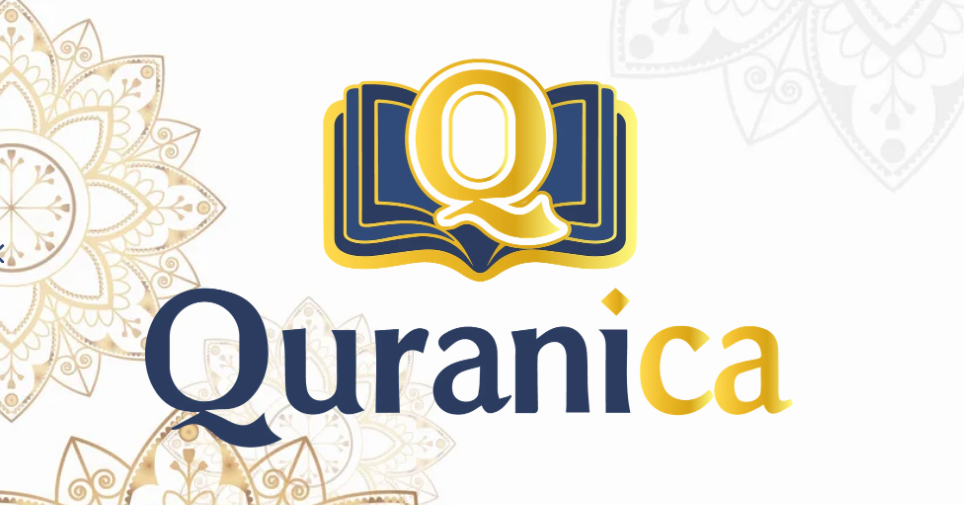
Conclusion:
The Quran is full of beautiful and short Quranic duas that cover all aspects of life.. You can memorize them and supplicate to your creator with the best duas ever. They draw the manner that you should follow during your supplication to Allah.
You can speak to your Creator with the most eloquent and meaningful words. These duas not only offer powerful supplications but also teach you the proper etiquette of calling upon Allah since some of the Quranic duas are said by prophets and all carry good meanings, waiting for you to learn and embrace.
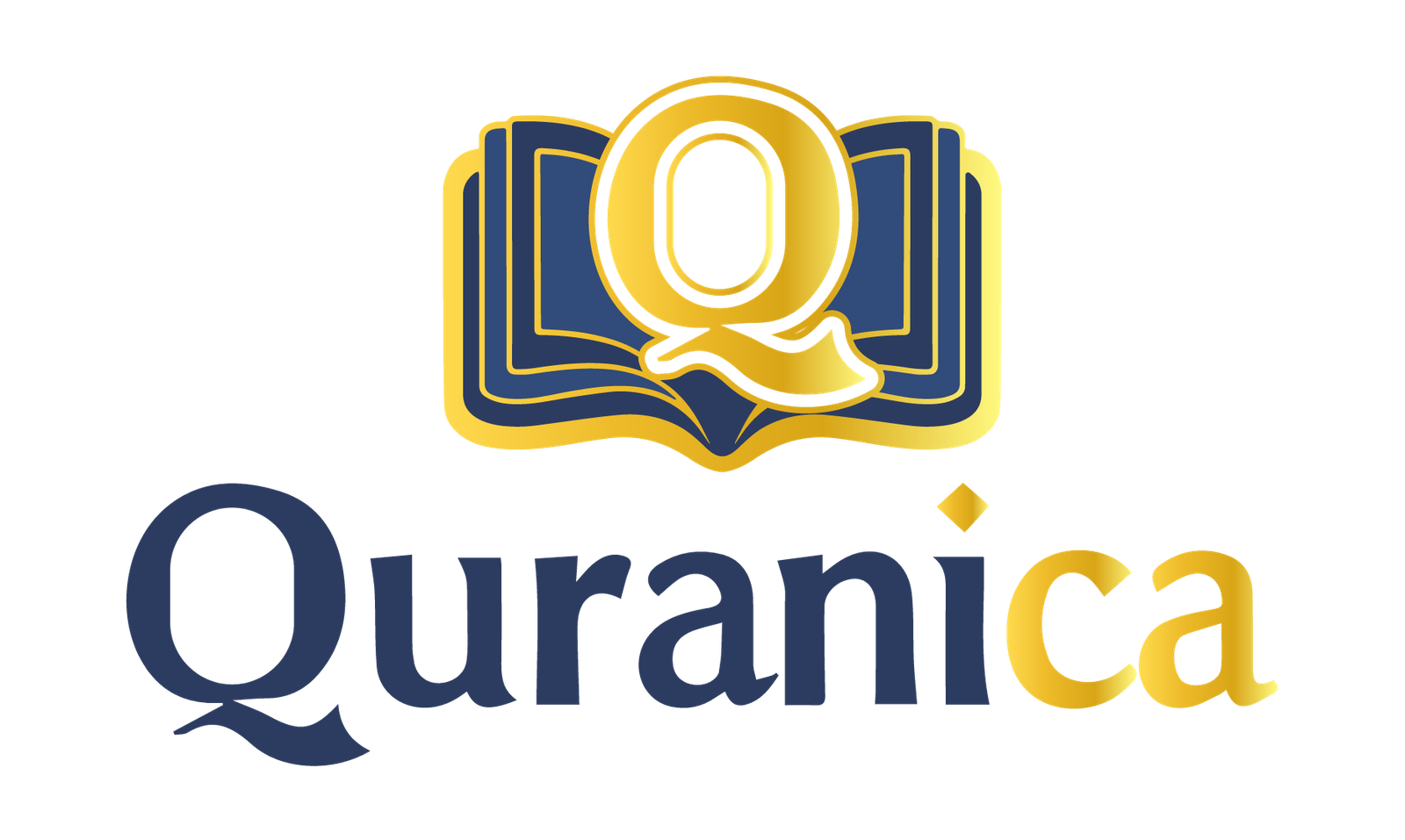
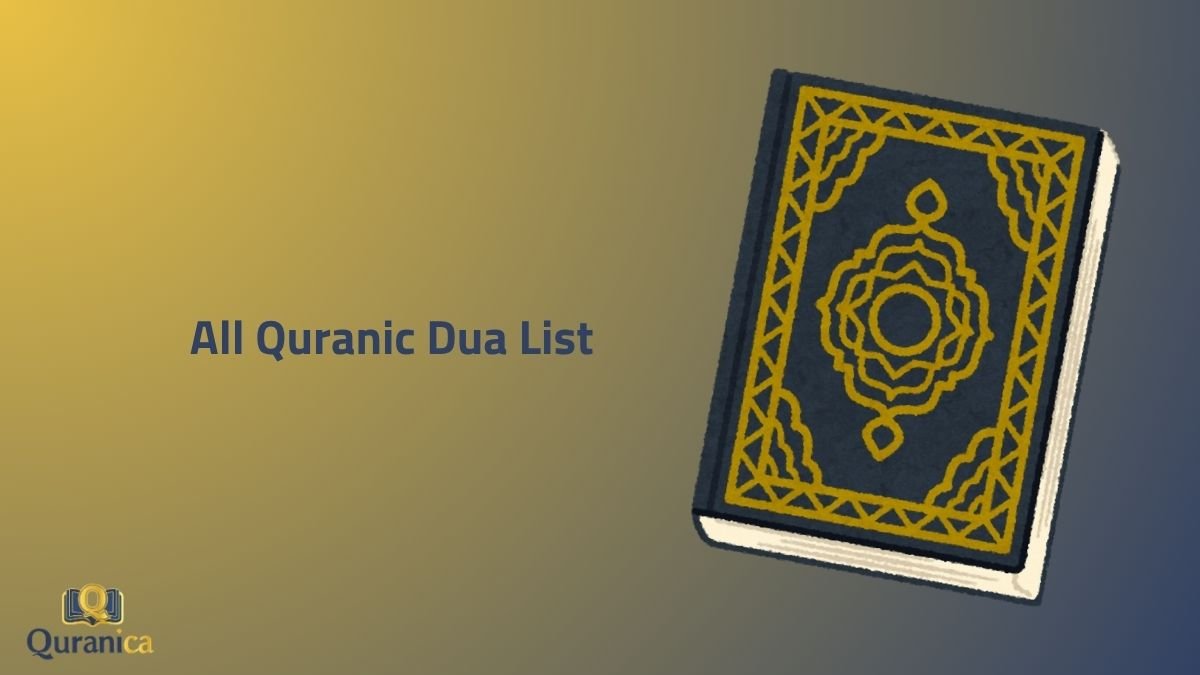



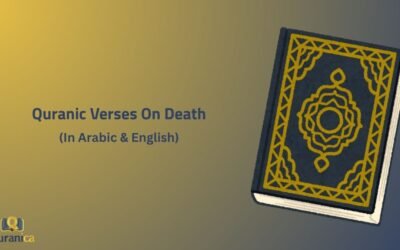

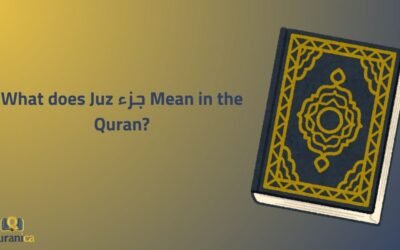
0 Comments